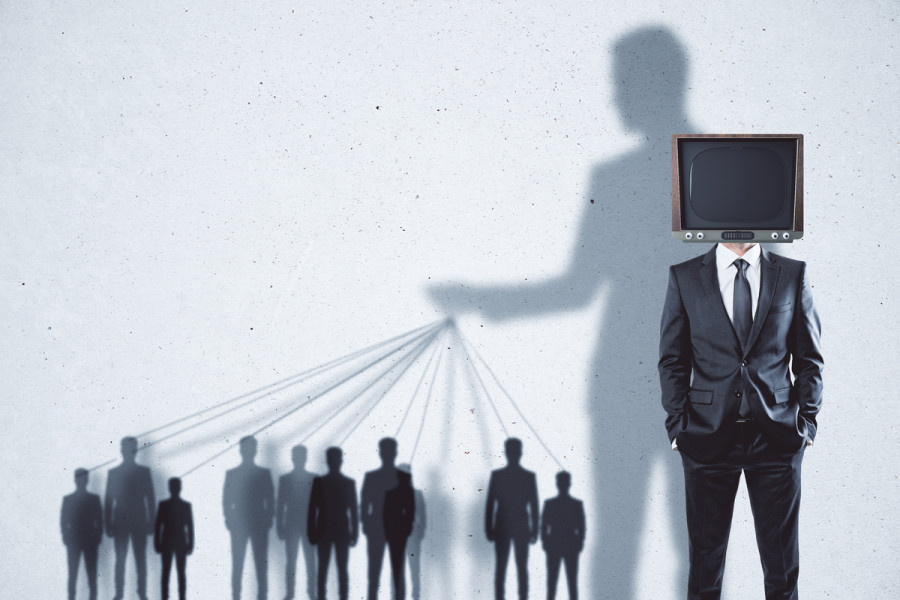Columns
Things forgotten
Those who never lived under fascism probably don’t get how serious are the times we live in.
Greta Rana
In an era when humanity has learned how to make even prehistoric bones speak, tell them of eras past and other wonders, it’s surprising how much they forget what is closer at hand. The current generation is puzzled, for example, when the Berlin Wall is mentioned by their elders. Do they even remember a time before the birth control pill or mobile phones? Leave aside the internet or Skype. Who would have believed in the latter half of the 20th century that one could attend a meeting virtually, launch a book or manage a business without the benefit of physical presence?
It’s frightening in a way. The Greeks believed that man is the measure of all things, but perhaps man has over-reached. Perhaps Covid-19 teaches us that. Here we are and a mindless, brainless virus is defeating us; or, is it teaching us? Well, what could it possibly teach? Perhaps to stop being so greedy, to stop exploiting the planet. Maybe, as it says on Star Trek, it’s time to follow a prime directive and not interfere in others’ existence, particularly the creatures that share this planet with us. Independent airwaves are full of news reports of demonstrations across Belarus calling for the resignation of Alexander Lukashenko, who has been in power too long.
Many of this generation do not remember the time before the Berlin Wall came down and democracy became the name of the political game. Totalitarianism was all too prevalent, and one wonders whether it ever left us. Lukashenko is a case in point. Those who never lived under the boot of fascism probably don’t get how serious are the times we live in. Everywhere, governments that wish to do so can enforce absolute obedience on citizens by using the fear of Covid-19. Fear has been used by despots since time immemorial; and should humanity forget this, they will do so again.
The first thing, of course, is the control of information. Has humanity forgotten the use of disinformation in the past? Has it forgotten Adolf Hitler and how his propaganda machinery convinced the German people that Jews were destroying their nation? Today, it’s called fake news; but it’s still there. In Virgil’s Aeneid, that ancient poet reminds us of the power of rumour. It should not be forgotten. Clever revolutionaries have used it throughout history. Humanity should take care that revolutions in the future are about the right things. If it does not, freedom will end; and isn’t freedom what every human being desires?
When the Berlin Wall stood, it was so easy to see the difference between a democratic state and a totalitarian one. Totalitarian states often called themselves democratic while tightening the leash on their citizens. The younger generation has no experience of this. They don’t even remember a time when there was no birth control pill. The only caution against profligate sexual exploits was the fear of AIDS, and even that has been lessened by improved medicine!
Today, a laser beam can operate on the human body without invading it, there are gamma knives and laser knives, and soon the surgeon will not need to cut anyone open. Admirable, but scary as this might make humanity over-confident. Something will come along to warn them. Something that can’t be controlled. Is that something Covid-19? Certainly forgetting the past leaves no building blocks for the future.
Consider what is remembered, who are the great figures of the past whose names were to live for eternity? Heroes of the Mahabharata, such as Arjun and Krishna, come to mind. Achilles is remembered because everyone has an Achilles’ heel. The surprising name is that of William Shakespeare; would he ever have guessed that people would still be reading him, watching him, giving school examinations about him and making conjectures about his sex life in the 21st century? Ben Jonson wrote on his tombstone, ‘Thou art not for an age but for all time’, and maybe he is.
Maybe he’ll be one of the things not forgotten, who knows? Well, what else is forgotten? Certainly the horrors of war judging by how many wars rage throughout the earth. ‘Nation shall speak peace unto nation’ as told by an ancient prophecy, but too often peace is not the intent. Sadly, the desire for money plays to the greed of the arms trade. To keep that trade going, there must be wars. Humanity has forgotten the wisdom of the Gita when Krishna lectures Arjun when the latter hesitates to fight; ‘War is futile / War is inevitable / It is the duty of the warrior to fight’.
This cry seems to have lasted the ages, and warriors are still fighting. The desire for peace is all too soon lost. Humanity soon forgets the horrors of war. World War II was supposed to be the war to end all wars, and look where it got the world. Left with unresolved issues that only war seems to resolve. Forget the torture and bloodshed, humanity wants power and money.
Right now, the demonstrations against Lukashenko in Minsk and the rest of Belarus show that people are not content with the old ways. Maybe it’s time for the younger generation to take over. We need people who don’t just hanker for a seat of power and squabble to become prime ministers. Maybe we need people who govern rather than rule. People who are prepared to let the ballot box speak.
That can only happen through the next generation. The current one has too many cobwebs it has not swept away. That holds true for Nepal as well as the rest of the world. If to decode the pro-monarchy demonstrations in different cities in Nepal, we have to see two institutions of the monarchy and democracy in the present rattled form in comparison—and judge how often incompetency of the present opens up the door for an old system based on its merit. However, in general, the old men and women are considered unfit for the 21st century. We should remember this no matter what things are forgotten. The past speaks, so let it teach.
***
What do you think?
Dear reader, we’d like to hear from you. We regularly publish letters to the editor on contemporary issues or direct responses to something the Post has recently published. Please send your letters to [email protected] with "Letter to the Editor" in the subject line. Please include your name, location, and a contact address so one of our editors can reach out to you.




 21.12°C Kathmandu
21.12°C Kathmandu















